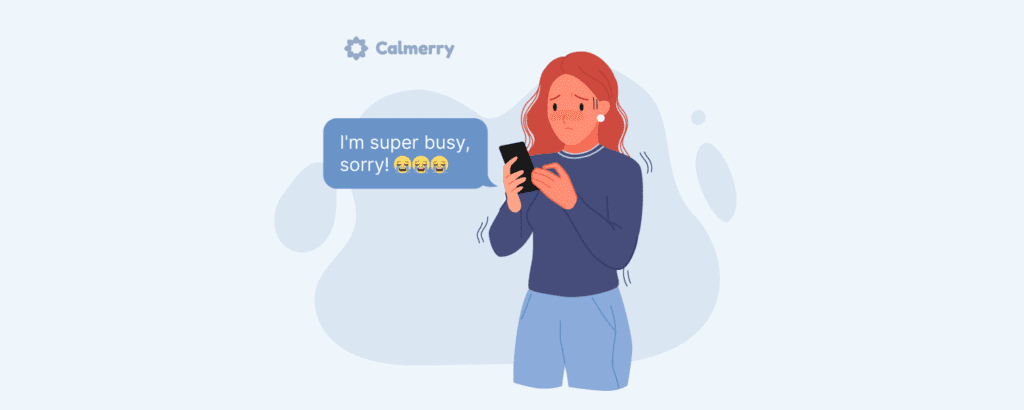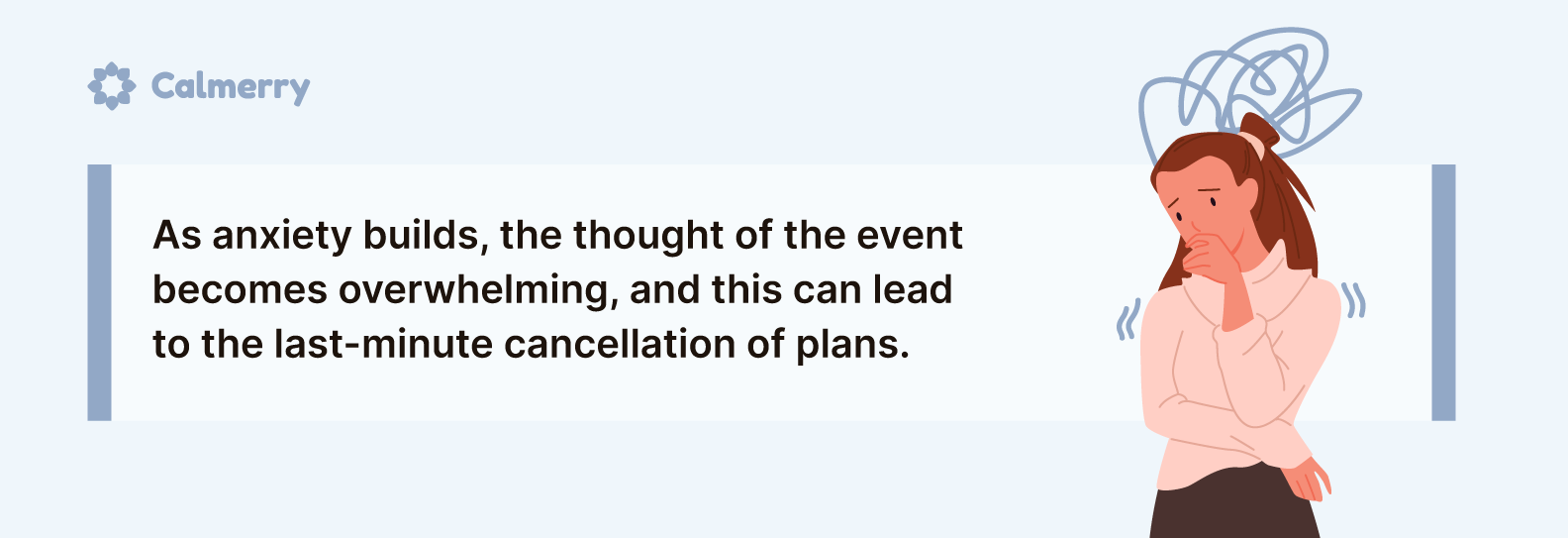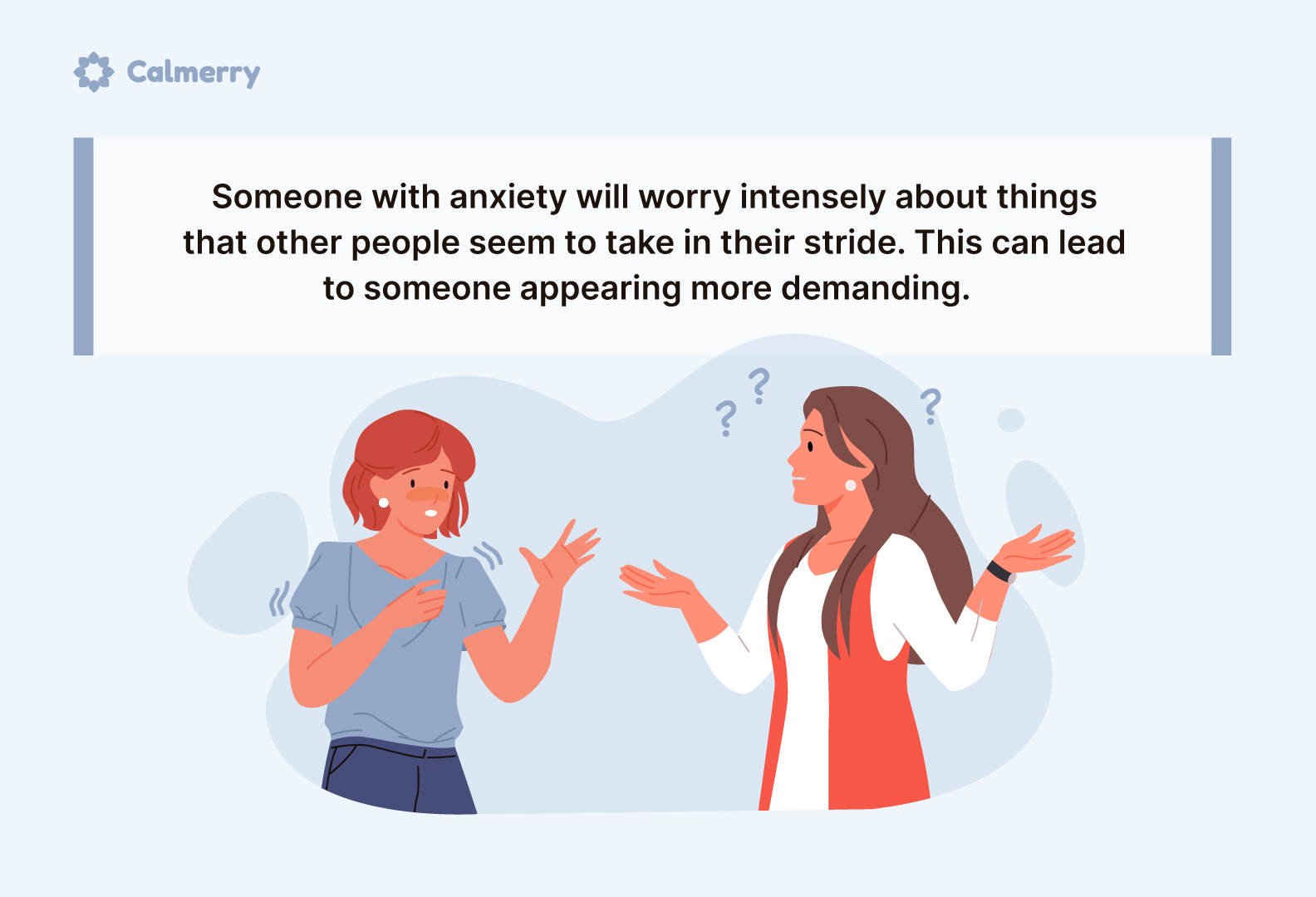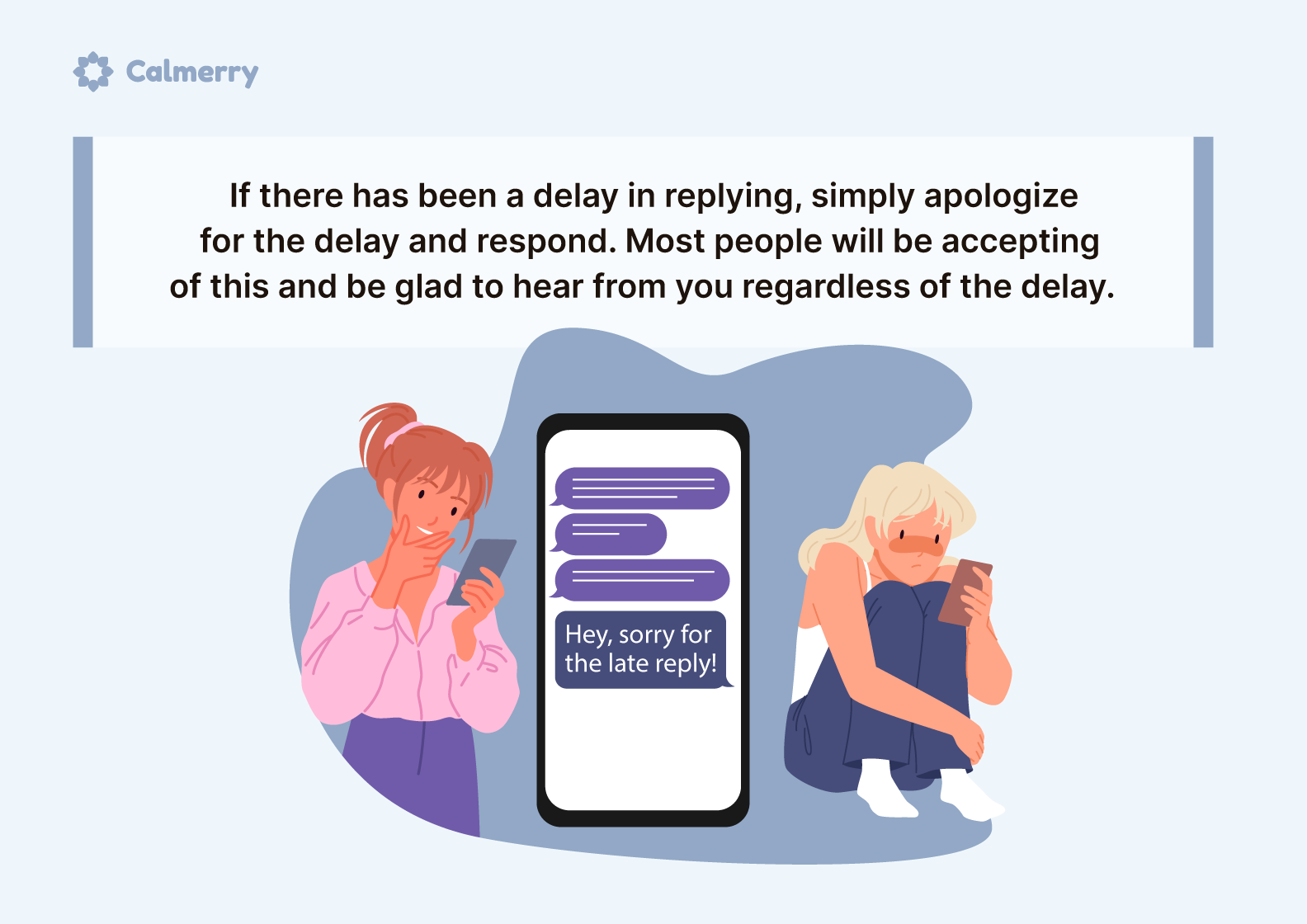“Social Anxiety Makes Me Seem Rude”: You’re Actually Using These 9 Coping Mechanisms

In this article
If you’ve ever found yourself retreating in social situations, avoiding eye contact, or overanalyzing every word you’ve said, you’re not alone.
It’s easy to feel misunderstood, especially when social anxiety manifests in ways that others might interpret as rudeness or disinterest. But your experiences and feelings are valid. You’re trying to navigate a world that sometimes feels too intense.
In this article, we’ll explore 9 coping mechanisms that people with social anxiety often use to manage their symptoms.
1. Canceling plans
Making plans can be incredibly stressful when you have anxiety. You might start to overthink and worry intensely about the upcoming event. While your friends or relatives might be looking forward to seeing you, your anxiety about the event can intensify as the day gets closer, especially if you have social anxiety.
As the event approaches, the thought of going out might become overwhelming, leading you to cancel plans at the last minute. This can be upsetting or frustrating for your friends and relatives, and it may even feel offensive to them if it happens repeatedly.
But your feelings are valid. You might feel disappointed about canceling, but the anxiety you experience can be too much to overcome.
To cope with this, it’s helpful to communicate with your friends and let them know what you’re going through. You could suggest alternative ways to spend time together, like having them visit you at home or rescheduling for a time when you might feel less anxious.
Letting your loved ones know that you appreciate their understanding can also help strengthen your relationships while managing your social anxiety.

2. Being insensitive to the needs of others
Anxiety can be all-consuming. Those who are anxious might become so absorbed in their own thoughts, feelings, and worries that they find it difficult to pay attention to how others are feeling.
This may have an evolutionary basis as, to help us deal with a perceived threat, the intensity of anxiety prevents us from being distracted by anything else so that we can focus on managing the situation.
Someone with anxiety might seem to talk endlessly about themselves, describing something in their life in such great detail that there is little time for you to talk about anything going on in your world.
While this can seem like annoying or rude behavior, rather than being thoughtless, someone with anxiety is likely so caught up in their own anxious feelings that they appear insensitive to others.
When you are anxious, it is common to experience “brain fog,” or difficulty concentrating. Try to take a step back and ask yourself if you check in on other people during social interactions, or if you tend to focus on yourself.
In the future, being more aware of this behavior pattern may make it easier to ensure you support others’ emotional needs, too.
If you have a friend or partner who is anxious, it is frustrating if your own needs are not being met. If there is something you want to talk about, it is OK to gently raise this.

3. Avoiding eye contact
In the Western world, holding eye contact is a sign that you are listening and interested in what someone else is saying. However, for someone with anxiety, making eye contact can be overwhelming.
If you have anxiety, avoiding eye contact might feel more comfortable for you than maintaining it. You may worry about what others think of you and fear embarrassing yourself. When someone tries to make eye contact with you, you might find yourself looking away and seeming more interested in something else.
This behavior is a sign that you might be feeling self-conscious or struggling with low self-esteem, or it’s just easier for you to communicate this way.
It’s okay if making eye contact feels overwhelming for you. Instead of feeling pressured to do so, try to accept that looking away is one of your ways of coping with anxiety.
4. Asking for repetition
If you find it hard to focus on what is being said alongside not making eye contact, it may be a sign of anxiety. Brain fog and overpowering worries might make it difficult to fully engage in a conversation. When you’re talking to someone, you might appear distracted or uninterested.
If you need someone to repeat themselves, of course, it doesn’t necessarily mean you’re not interested in listening. Your attention might be divided due to intense worrying.
If you ask for clarification, it shows that you genuinely want to understand, even if you’re struggling to process information at first.
5. Appearing demanding or indifferent

If you’re going to watch a movie, you might find yourself insisting on arriving an hour early to secure a good seat, even if you know it’s unlikely to be busy. This can feel like overkill to others.
Or, vice versa, anxiety can sometimes make you seem “disinterested” or “indifferent.”
You might not feel confident enough to express where you’d like to go for dinner or which movie you want to watch. You may catch yourself frequently saying, “I don’t mind,” which can be frustrating for others if they feel like they’re always the ones making decisions.
This behavior often stems from low self-esteem and a fear of making the “wrong” choice. Instead of voicing an opinion, you prefer not to draw any attention to yourself, especially in social situations.
If you find yourself being “demanding” or “indifferent,” remember that even though it might come across as rude, you’re likely behaving this way because of your mental health.
6. Not replying to messages or emails
When you send a message or email to a friend, it is normal to expect a reply. When there is no response, you might assume the other person is being rude or doesn’t value you enough to reply.
But someone with anxiety may struggle to know what to say when responding to a message. They may become overwhelmed with fear of saying the wrong thing, or not being able to reply with something funny or impressive.
They may also feel emotionally overwhelmed because of social interactions.
The longer they procrastinate on sending the message, the harder it becomes to respond.
Embarrassment may also start to build as the delay in replying lengthens.
If you struggle to reply due to anxiety symptoms, take a deep breath. You don’t have to send the perfect reply, but you do need to send a reply that is authentic to you.
If someone doesn’t reply to you, and a reply was either required or you feel worried about them, it is OK to send a follow-up message to check in with them.

7. Leaving social events early
For many people, attending social events is an enjoyable way to connect and unwind. But if you have social anxiety, these gatherings can quickly become overwhelming.
The noise, the crowds, and the pressure to engage in conversation can heighten your anxiety to the point where you feel the need to leave early.
When you start to feel overwhelmed, you might find yourself looking for an exit strategy. This could mean slipping out quietly or making an excuse to leave. While this behavior might come across as rude or disinterested to others, it’s a coping mechanism to manage your rising anxiety levels.
Leaving social events early is often a way to regain a sense of control and calm. It allows you to escape a situation that feels too intense and to protect yourself from further anxiety.
It’s important to communicate with your friends and family about your need to leave early so they can understand and support you.
8. Using short responses
Engaging in conversation can be particularly challenging when you have social anxiety. The pressure to think of the right thing to say, the fear of being judged, or the potential for awkward silences can make interactions feel like a minefield. As a result, you might resort to using short responses.
Short responses, such as “yes,” “no,” or “I don’t know,” are ways to keep interactions brief and manageable. They reduce the risk of saying something that could be misinterpreted or embarrassing.
While this can make you seem disinterested or unengaged, it’s actually a strategy to minimize anxiety and avoid social pitfalls.
If you find yourself using short responses, it’s a sign that you’re trying to navigate a conversation without triggering your anxiety.
You can let others know that you appreciate their understanding and that your brevity is not a reflection of your interest in them, but rather a way to manage your social anxiety.
9. Withdrawing from conversations
Conversations are a central part of social interactions, but they can be incredibly daunting if you have social anxiety.
Withdrawing from conversations might involve staying quiet, avoiding contributing to discussions, or physically removing yourself from a group setting.
This behavior can be perceived as aloofness or lack of interest, but it’s actually a protective measure to avoid the stress and potential embarrassment that come with social interactions.
By withdrawing, you’re creating a safe space for yourself where you can avoid the triggers that exacerbate your anxiety.
Why to talk to a therapist if you have social anxiety
Dealing with social anxiety can be challenging and often feels isolating. But arranging therapy for anxiety in person or online can be very beneficial for managing your symptoms.
- Therapy offers a confidential and non-judgmental environment where you can openly discuss your fears and anxieties.
- A therapist can help you identify the underlying causes and triggers of your social anxiety, whether they stem from past experiences, learned behaviors, or other factors.
- Therapists can work with you to address and reduce avoidance behaviors that reinforce social anxiety, helping you to engage more fully in social situations.
- They can also help you to develop coping mechanisms to avoid anxiety spoiling your enjoyment of socializing.
If you’re ready, we can match you with one of our experienced Calmerry therapists within 1 hour. Just start with a brief survey.
online therapy
live video session



